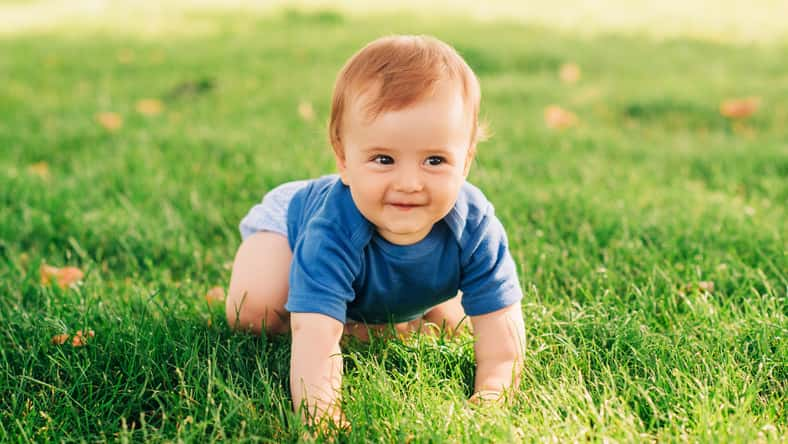These Are All The Reasons Why Babies Are Commonly Scared Of Grass, From The Prickly Texture Creating An Overwhelming Sensory Experience To Even Instinctual Wariness Of Plants That Humans Have Developed Throughout Evolution

Babies dislike many things, such as loud noises and bright lights. These aspects of the outside world can irritate babies, causing them to be fussy and tearful.
While those things are obvious sources of irritation—even adults don’t like them—it may come as a surprise to you that some babies are not fans of touching grass.
It might not be something you learn until you take your baby outside and try to set them on a lush green lawn, watching as they do everything in their power to squirm away from it.
Over the years, viral videos have shown babies contorting their bodies in various ways to avoid coming into contact with grass. It’s all very cute and adorable, but why do they do it? Why do babies avoid grass?
There’s a simple explanation for it. The sensory experience of grass can be overwhelming for babies.
According to Dr. Gina Poser, a pediatrician based in Fountain Valley, California, the prickly texture of grass is much different from the soft carpet, tile, or wood flooring that they’re used to. So, grass can be scary to them. She also pointed out that grass can be itchy to some babies and even lead to rashes.
Research published in the journal Cognition notes that babies may also avoid grass due to an instinctual wariness about plants that humans have developed over the ages as a way to protect themselves from the defense strategies of plants.
“Plants have been central to human life as sources of food and raw materials for artifact construction over evolutionary time. But plants also have chemical and physical defenses (such as harmful toxins and thorns) that provide protection from herbivores,” wrote the authors of the study.
In the study, the researchers conducted two experiments that revealed that infants as young as eight months demonstrated more resistance to interacting with plants than any other entity.

annanahabed – stock.adobe.com – illustrative purposes only, not the actual child
So, their wariness of plants may just be a natural behavior that has resulted as a way for humans to keep from getting poisoned.
Still, plenty of babies don’t have an issue with playing in grass. In fact, they even enjoy it! But if your baby has shown signs of being afraid of grass, you can slowly acclimate them to grassy areas by including activities they like.
You can also sit on the grass yourself to show your baby that it’s okay. Once they’ve experienced positive feelings associated with grass, they can begin to get over their fear of it.
Sign up for Chip Chick’s newsletter and get stories like this delivered to your inbox.
More About:Parenting





